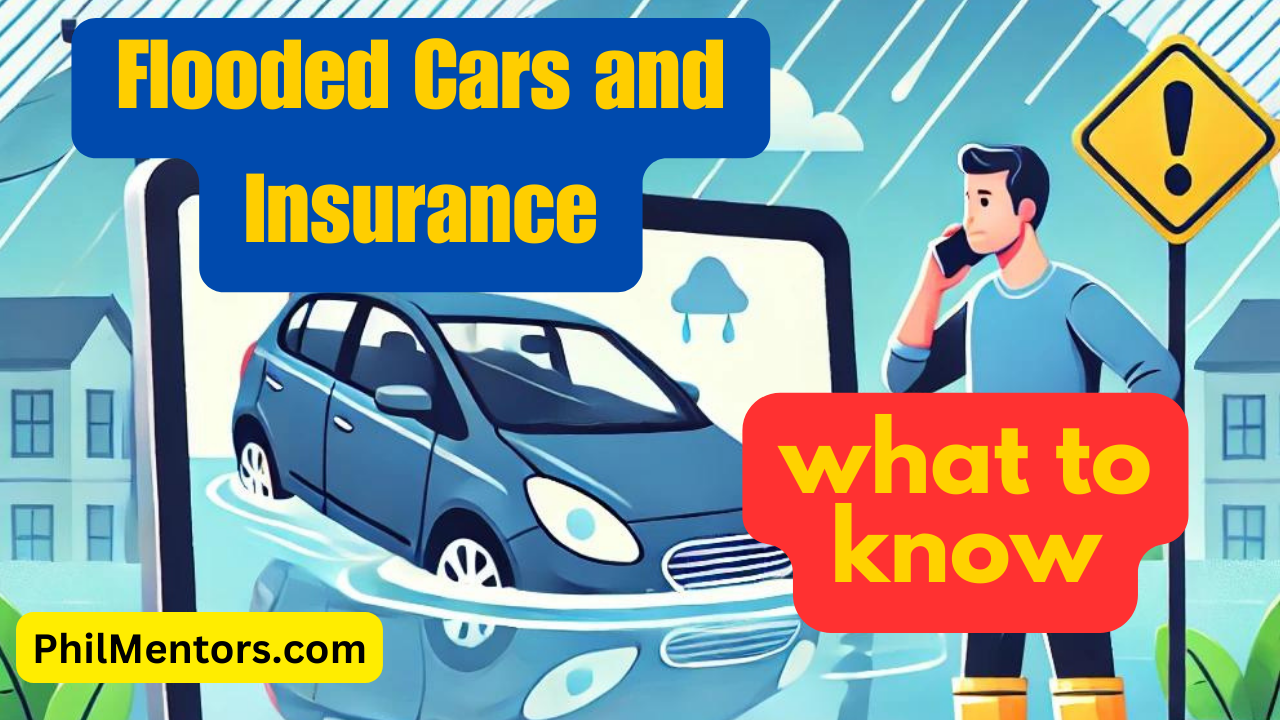Your cart is currently empty!

Flooded Cars and Comprehensive Insurance: What You Need to Know
Introduction
In recent years, extreme weather events have become more frequent, leading to an increase in flooded vehicles. For car owners, dealing with a flooded car can be both financially and emotionally draining. Fortunately, comprehensive insurance can provide a safety net. This article explores the relationship between flooded cars and comprehensive insurance, offering valuable insights and answering common questions.
What is Comprehensive Insurance?
Comprehensive insurance is a type of auto insurance that covers damage to your vehicle from non-collision-related incidents. This includes theft, vandalism, fire, natural disasters, and, crucially, flooding. Unlike liability insurance, which only covers damage to other vehicles or property, comprehensive insurance ensures that your car is protected against a wide range of risks.
How Comprehensive Insurance Covers Flooded Cars
When your car is damaged by flooding, comprehensive insurance can cover the cost of repairs or even replacement if the vehicle is deemed a total loss. Here’s a step-by-step look at how it works:
- Assessment: After flooding, you need to contact your insurance company to report the damage. An adjuster will be assigned to evaluate the extent of the damage.
- Damage Evaluation: The adjuster will inspect the vehicle to determine whether it can be repaired or if it is a total loss. A car is typically considered a total loss if the repair costs exceed a certain percentage of the car’s value.
- Repair or Replacement: If the car can be repaired, the insurance company will cover the costs up to the policy limits. If it’s a total loss, you will receive a payout based on the actual cash value (ACV) of the car.
Join our email newsletter for free and receive weekly money tips
Factors Affecting Payouts
Several factors can influence the payout you receive from your insurance company:
- Deductibles: This is the amount you must pay out of pocket before the insurance kicks in. Higher deductibles generally mean lower premiums but more out-of-pocket expenses in case of a claim.
- Policy Limits: This refers to the maximum amount your insurance will pay for a covered claim. Ensure your policy limits are sufficient to cover potential damages.
- Depreciation: The payout is based on the car’s ACV, which takes depreciation into account. Newer cars generally have higher values and may receive higher payouts.
FAQs About Flooded Cars and Comprehensive Insurance
Q: Does comprehensive insurance cover all types of water damage?
A: Yes, comprehensive insurance typically covers all types of water damage, including flooding from natural disasters and water ingress from heavy rains.
Q: How do I know if my car is a total loss after flooding?
A: An insurance adjuster will assess the damage. A car is usually declared a total loss if the cost of repairs exceeds a significant portion of the vehicle’s value, often around 70-75%.
Q: What should I do immediately after my car gets flooded?
A: First, ensure your safety and avoid starting the car, as it could cause more damage. Contact your insurance company to report the incident and begin the claims process.
Q: Will filing a flood damage claim increase my insurance premiums?
A: It’s possible that your premiums could increase after filing a claim, as insurers may see you as a higher risk. However, this varies by insurer and individual circumstances.
Q: Can I purchase comprehensive insurance after my car has been flooded?
A: No, you cannot purchase comprehensive insurance to cover damage that has already occurred. Insurance policies only cover future incidents.
Q: What if my comprehensive coverage isn’t enough to cover all the damages?
A: You would need to pay out-of-pocket for any costs exceeding your policy limits. It’s important to review your coverage regularly to ensure it meets your needs.
Conclusion
Understanding the role of comprehensive insurance in protecting against flood damage is crucial for car owners. By ensuring you have the right coverage, you can safeguard your financial well-being and ensure that you’re prepared for unexpected events. If you live in an area prone to flooding, consider reviewing your auto insurance policy to ensure you have adequate comprehensive coverage.
Join the Philmentors Community!
Nais mo bang matuto pa ng mga tips at makakuha ng expert advice para sa iyong personal na pag-unlad at financial success? Sumali na sa aming newsletter at maging bahagi ng Philmentors Community!
Bakit ka dapat mag-subscribe?
- Exclusive Insights: Makakuha ng eksklusibong tips at payo mula sa mga eksperto sa iba’t ibang larangan.
- Latest Updates: Maging updated sa mga pinakabagong trends at opportunities.
- Special Offers: Tumanggap ng mga special offers at discounts para sa aming mga serbisyo.
- Success Stories: Maging inspirasyon sa mga kwento ng tagumpay mula sa ating mga community members.
Mag-subscribe Ngayon at Simulan ang Iyong Paglalakbay sa Tagumpay!